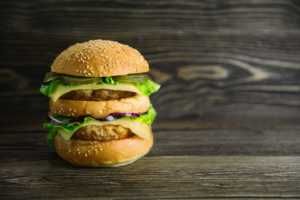

In USA and Canada, sales tax vary depending on state where you buy them, which is between 0.0% to 10.5%. It has no similarities in term of economic concept.įor countries like United States, Canada, and Japan, the prices are displayed without sales tax. The name took inspiration from The Big Mac Index, by The Economist. This ensures it only displays authoritative retail price from Apple, and not resellers or online shopping sites where prices are subject to occasional promotions and targeting. It took metadata from Apple called Structured Data (which Google use for its Shopping site) on each product page, parse the price in each currency, and depending on the country, deduct or add the tax on the price, and display the final price. The Big Mac index was formed in 1986 “as a lighthearted guide to whether currencies are at their ‘correct’ level,” The Economist says.ĭifferences in local prices are considered to suggest what exchange rates should be based on the US dollar.Īnd for those who argue that the cost of products in poor countries is reasonable, the GDP-adjusted index takes this into account.The Mac Index indexes Apple website to get latest price of all Apple products, and display them in latest currency rates, after calculating any applicable tax rates, and tax refund rates. This has led to a situation whereby the country has one of the most expensive Big Macs in the world while also undergoing an economic crisis.Īfter Venezuela, rich countries dominated the list for most expensive Big Macs, with Switzerland ($7.04), Norway ($6.30), Sweden ($6.20) and the US ($5.65) rounding out the top five slots. With the South American country’s currency crashing, the purchasing power of the bolivar for foreign goods has collapsed and led to food scarcity. The Economist notes this in its index, putting the overvaluation at 47.4 percent. This hyperinflation has led to a situation whereby the bolivar’s purchasing power has crashed, but its exchange rate has not kept pace, leading to currency overvaluation against the dollar.

In early 2018, the country’s central bank decided to devalue the Venezuelan bolivar by 99 percent in a move to counter the country’s rampant hyperinflation. Venezuela has also been undergoing an economic crisis in recent years.

On the opposite end of the spectrum, the price of a Big Mac in Venezuela is $8.35, according to the index. Even at an artificially low price, a Big Mac is small consolation,” The Economist said. “Lebanon’s currency chaos is both a reflection of its economic disaster and a contributor to it. This disparity is a key contributor to Lebanon’s placement on the index. Importers can, for example, purchase wheat an exchange rate of 1,500 pounds to the dollar, or cheese at 3,900 pounds. The Economist noted that an important reason for this disparity is because of the favorable subsidized rates that Lebanese importers can take advantage of to purchase foodstuffs. Black market exchange rates in Lebanon of 22,000 pounds to the dollar would place the purchasing cost of a Big Mac at just $1.68. However, because the currency has collapsed even more dramatically than this price rise, The Economist’s index places it as the cheapest. The price of a Big Mac in Lebanon has increased dramatically to 37,000 Lebanese pounds as the country suffers an ongoing economic crisis.


 0 kommentar(er)
0 kommentar(er)
